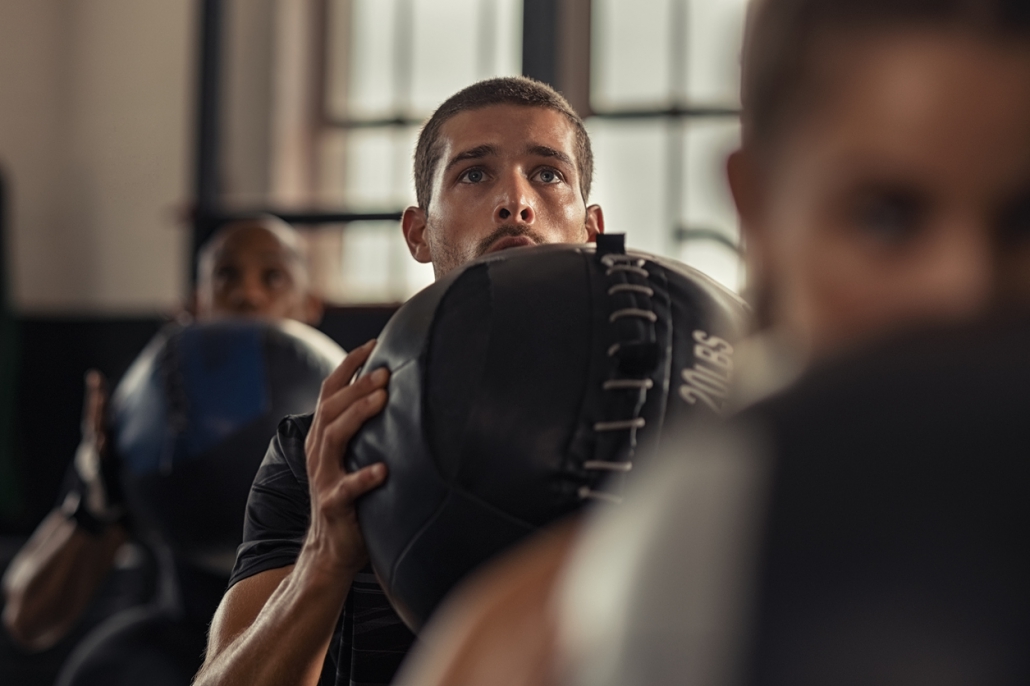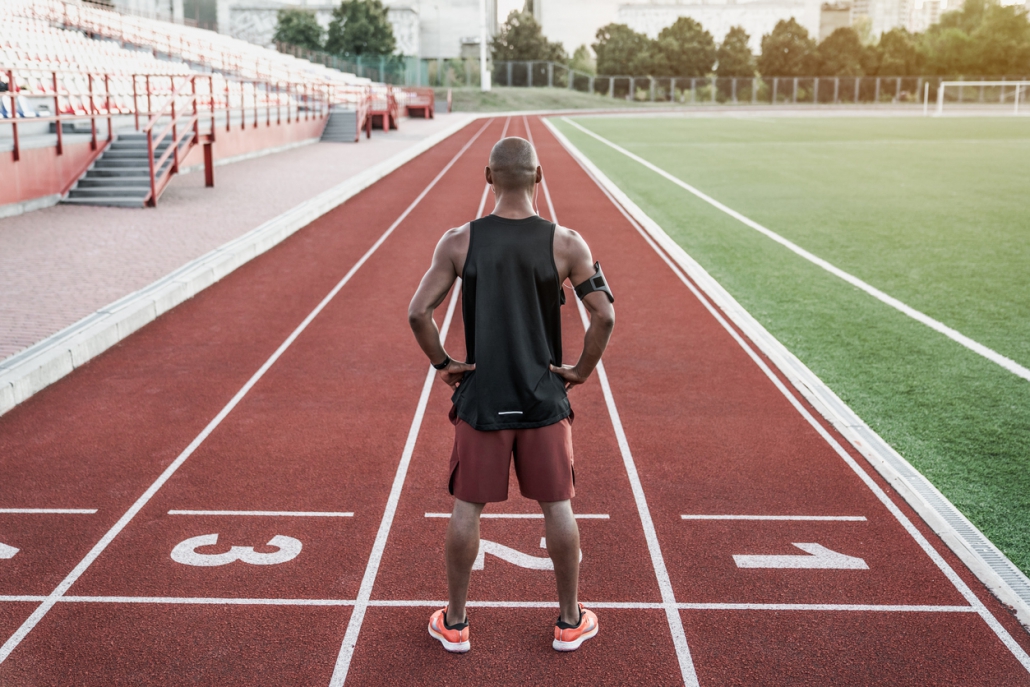Mental Training for Athletes: What is It and How to Start
If you’re an athlete looking to take your performance to the next level, chances are, you’ve heard of mental training.
All the greats do it, including Michael Phelps, Tiger Woods, Kobe Bryant, Tom Brady, and many other successful athletes.
This often overlooked aspect of training involves training the mind to improve physical performance. How, you ask? Mental training can help athletes overcome anxiety, improve focus, and build confidence.
And better yet, it’s easy to implement into your training and can be done virtually anywhere, whether in a hotel room, on the court, or even on a plane when you’ve got a few hours to sit and stare out the window.
The remainder of this blog post will explain how you can begin to use mental training (and mental training tools). We’ll explain what it is, and how to get started.
Key takeaways:
- Mental training can help improve performance & increase confidence
- Anyone can start mental training — it’s not just for Elite level athletes
- Find the best mental skills and apply these to the weaker areas of your game

What is mental training?
Mental skills training consists of a mix of techniques and practices to help you develop mental toughness, improve skill learning, and even performance on (and off) the field, including in everyday life [1].
Examples of popular mental training exercises include:
- Visualization exercises
- Mindfulness
- Goal setting
- Deep breathing
- Positive self-talk
Other mental training tools and skills exist, but these are the main ones (and easiest to start with no prior mental training experience).
But for those interested, more advanced skills include [2]:
- Emotional control
- Activation & Relaxation
- Negative thinking
- Attentional control
If you do choose to adopt the more advanced skills, we’d recommend focusing on the easier-to-learn and implement skills first. For example, positive self-talk is typically easier to learn than negative thinking (if you do negative thinking wrong, it could affect your confidence). Likewise, taking deep breaths and focusing on mindfulness is relatively easy to begin vs. activation and relaxation of the muscles.
By practicing a mix of mental skills, athletes can reduce anxiety, improve confidence, develop resilience, and ultimately improve performance.

Why is mental training important?
Let’s think of a scenario where you have two athletes — both are equally matched in physical skills, but one athlete practices mental skills such as visualization, goal setting, and positive self belief and self talk. The other athlete focuses exclusively on physical practice and performance.
Which athlete do you think will perform best?
Chances are, it’s the athlete who has a more holistic skill set — they’re essentially getting more training in without the added fatigue. Performing visualization, for example, reinforces neural pathways in the brain. It’s like training, but without lacing up your boots and heading out to practice.
Mental training can be especially useful for overcoming anxiety and weaknesses in your sport. Let’s say, for example, that you’re a cyclist, but you find descending challenging — perhaps it scares you.
You can use mental training to increase self confidence, reduce anxiety, and run through successful skill performance (in your mind) to get better at descending confidently. That also includes mental preparation before a big game or competition — you’re better prepared, and more likely to achieve athletic success.
With the correct physical and mental training, you’ll quickly improve your skill-specific performance.

Mental skills in practice – what does it look like?
Creating a mental training plan will look different for every athlete. For example, some athletes may prefer certain mental skills, applying these to weaknesses in their performance. Other athletes may find other skills difficult to utilize but use 1 or 2 skills really well.
A great way to put mental training into practice is to list all the required skills of your sport, and rate these (based on how good you think you are at each skill) on a scale of 1-10 (1 being poor, 10 being excellent).
The skills which you rate the lowest are what you should seek to improve using mental skills. For example, if you’re a cyclist and you feel scared of cornering at high speeds, you could use a combination of positive self-talk and visualization to improve self confidence and reduce anxiety.
Choosing what mental skills is a little more complicated than that, but we have an entire article on how to create a mental training program for athletes — check it out if you want a more in-depth guide.
How can mental training improve athletic performance?
Mental training can improve performance by enhancing an athlete’s ability to regulate their thoughts, emotions, and behaviors, and by strengthening their mental toughness. It’s also a useful tool to increase motivation!
To provide a contextual example: athletes can use visualization techniques to rehearse competition. They can use positive self-talk to increase confidence and reduce anxiety, e.g. using cues and prompts to keep them focused with minimal distractions.
Furthermore, goal setting can help athletes move with a sense of purpose and direction. This makes it a lot easier for athletes to develop healthy routines and habits that move the needle towards greater performance, both as an individual and a team.
These are just a few examples of how mental training can positively impact athletes. But these are only a few case uses — the best athletes apply these principles and skills as part of a daily practice to improve all aspects of their sport/game further.
Who can benefit from mental training?
Mental training is not just for elite athletes! And while Michael Jordan and Tiger Woods may use these powerful techniques, there’s no reason why you can’t implement them into your training, too.
Training the mind is for everyone, whether you’re in a weekend soccer league, or you play basketball in high school.
And while it’s mainly used by the professional athlete population, we can learn a lot from those who use it. Besides, there’s a reason why they do it: it’s because it’s so powerful.
But mental training is also useful for non-athletes. Coaches may also choose to engage in mental strategies to improve their performance, goal-setting ability, and communication during an important game (i.e. not letting emotions get the best of them).
There are endless avenues and possibilities for mental training. And with the field of sports psychology only getting bigger, it’s a better time than any to start mental training.

Use Rewire to increase readiness and focus to perform
Athletes looking to boost their mental toughness, manage stress, and improve their mindset can benefit from using Rewire’s athlete platform.
Based on neuro-science, athletes can employ brain training protocols and activities to build mental strength, resilience, and essential mental skills. You can also use guided sessions to improve focus, provide stress & anxiety relief, and prepare the mind for training or competition.
Coaches can also use Rewire to improve athlete performance — you can view the athlete readiness dashboard, which provides valuable insights and allows you to adjust training load accordingly to help achieve optimal performance (while avoiding injury and burnout).
“Rewire comes as a Gamechanger in the field of ‘tracking and monitoring readiness’ and provides a one-stop shop for both physical and cognitive recovery, as well as having functionality for building mental resilience.” – Pete McKnight (Human Performance Expert)
Find out how Rewire can help you
References:
- Holmes, P.S. and Collins, D.J., 2001. The PETTLEP approach to motor imagery: A functional equivalence model for sport psychologists. Journal of applied sport psychology, 13(1), pp.60-83.
- Röthlin, P., Horvath, S., Trösch, S., Holtforth, M.G. and Birrer, D., 2020. Differential and shared effects of psychological skills training and mindfulness training on performance-relevant psychological factors in sport: a randomized controlled trial. BMC psychology, 8, pp.1-13.











